Kashmir and Bollywood: Hindu Nationalism, Islamophobia And Obfuscation of the Military Occupation
The occupied region of Kashmir and India’s Mumbai-based Hindi cinema, popularly known as Bollywood, share a long history of relationship.
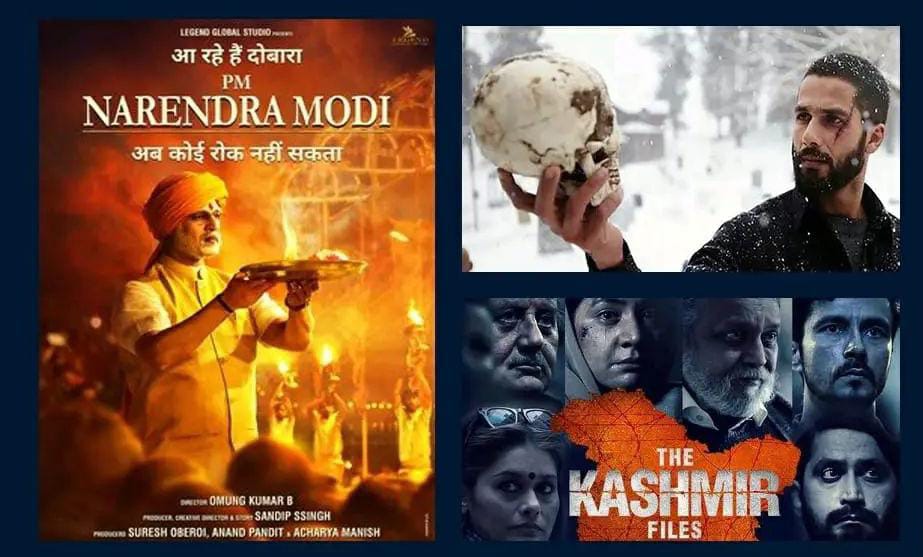 CategoriesReports
CategoriesReportsThe occupied region of Kashmir and India’s Mumbai-based Hindi cinema, popularly known as Bollywood, share a long history of relationship.
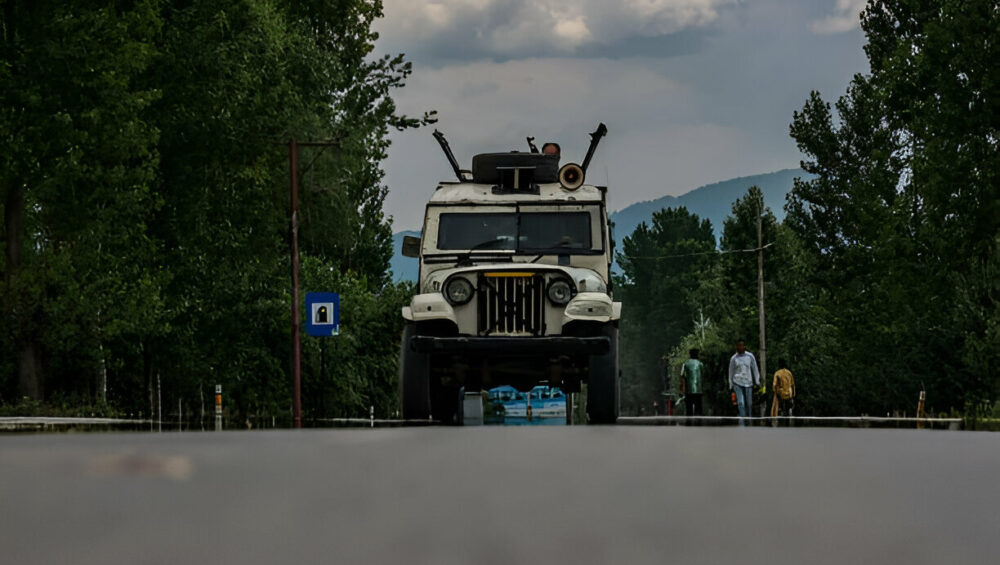 CategoriesReports
CategoriesReportsThe first six months of 2024 (January-June) saw a continued trend of state repression and counter-insurgency operations in the war-trampled region of Indian Occupied Jammu and Kashmir (IOJK).
 CategoriesReports
CategoriesReportsThe revocation of Article 370 on 5th August 2019 has brought about a paradigm shift in the socio-political landscape of Kashmir. Following the unilateral revocation of this article that granted ‘semi-autonomous’ status to the Indian Occupied Kashmir by perpetuating hermeneutical violence, India has initiated a multifaceted socio-psychological re-engineering of Kashmir’s religious and cultural landscape–––, effectuating…
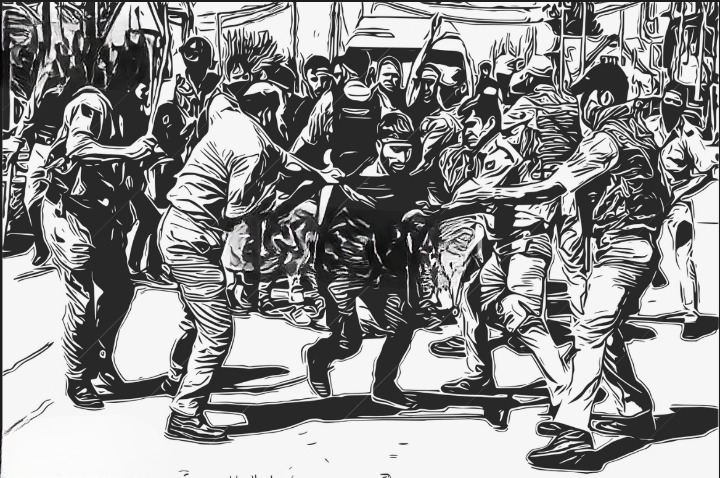 CategoriesReports
CategoriesReportsFor over three decades, the region of Indian Occupied Kashmir has been a crucible of Armed conflict and suffering, marked by violence, oppression, and persistent turmoil. The report Published by the Institute of Kashmir Studies (IKS) for the period of April to September 1997 serves as a stark reminder of the harsh realities faced by the Kashmiri populace during that era, highlighting the enduring and tragic narrative that continues to unfold.
 CategoriesReports
CategoriesReportsDark Days Deadly Nights is the collection of testimonies of the Kashmiri civilians who were brutally massacred by the Indian occupying forces.
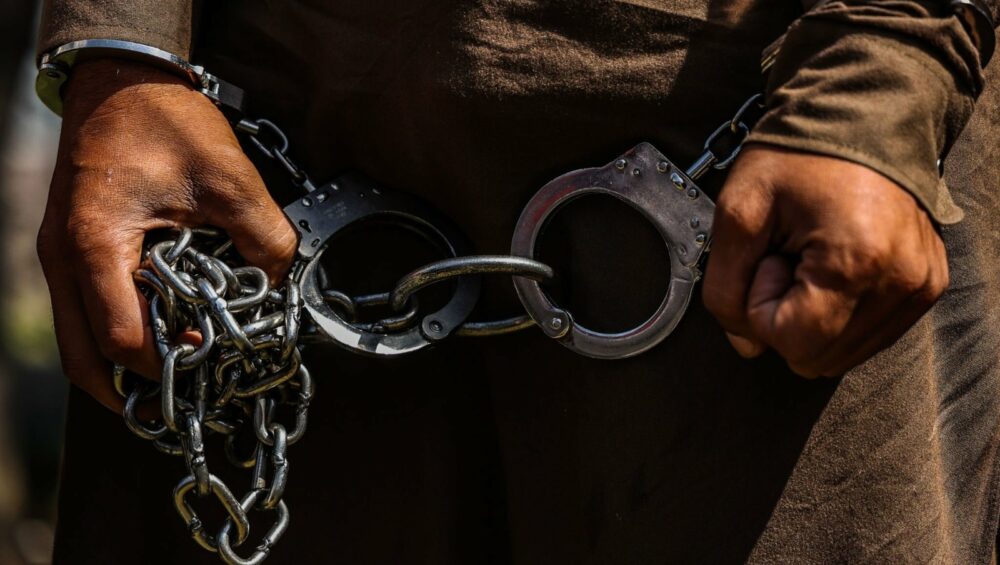 CategoriesReports
CategoriesReportsThe Legal Forum for Kashmir (LFK) released its annual report, titled “Human Rights Situation in Indian Occupied Jammu & Kashmir (IOJK): January to December 2023.”
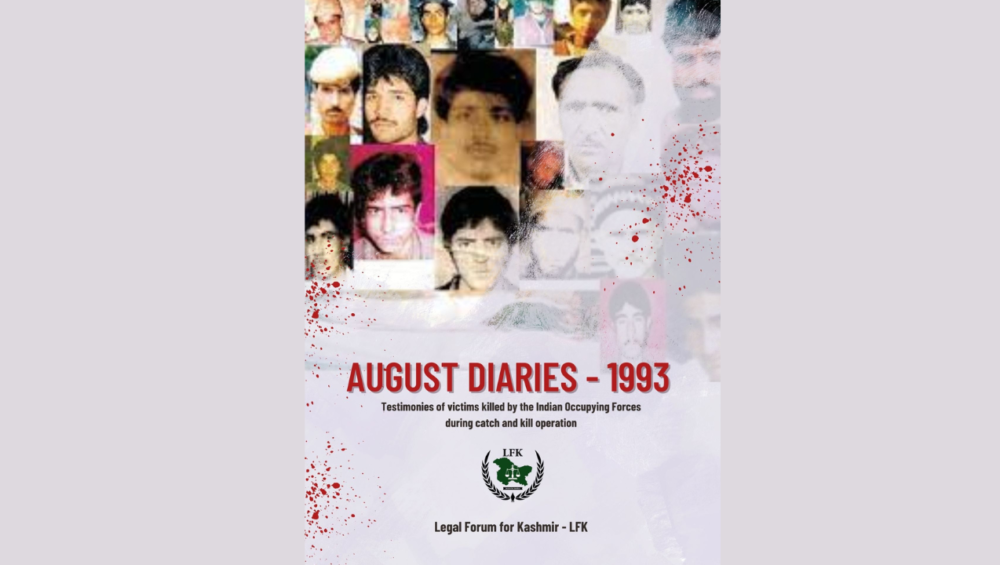 CategoriesReports
CategoriesReportsAugust Diaries – 1993 is the collection of testimonies of the unarmed Kashmiris who were brutally massacred by the Indian occupying forces under the pretext of Catch & Kill Military Operation.
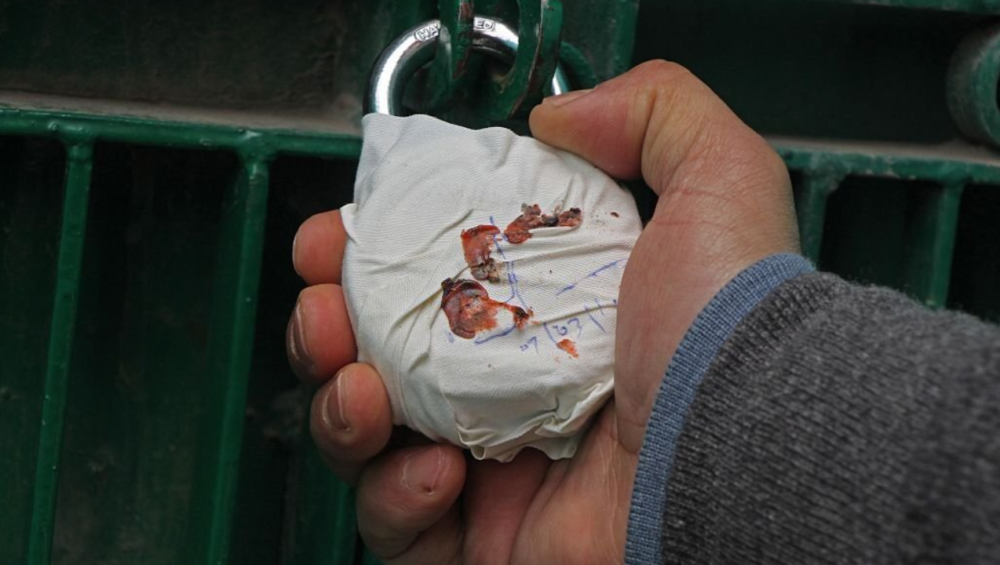 CategoriesReports
CategoriesReportsJamaat-e-Islami – A socio-politico-religious organization in the Indian sub-continent was founded by Syed Abul Aala Maududi in 1941 in Lahore. Though Jamaat-e-Islami Jammu and Kashmir has ideological similarities with Jamaat-e-Islami India and Pakistan, but maintains a separate constitution and different modus operandi on account of the disputed nature of Jammu and Kashmir. Jamaat since its inception challenged the political hegemony of India and launched political awareness campaigns within the state. Sheikh Abdullah extended the emergency declared in India by the Indira Gandhi regime to J&K in 1975 and banned Jamaat and schools run by it. Jamaat detested Shaikh Abdullah’s move to end the plebiscite front and opposed the Indira-Abdullah accord. Jamaat challenged Abdullah by contesting against him and his party in 1977’s parliamentary elections. This culminated in a conspiracy hatched against Jamaat on the occasion of Bhutto’s hanging in Pakistan in April 1979. The property of Jamaat members, worth crores, was damaged by state-backed mobs.
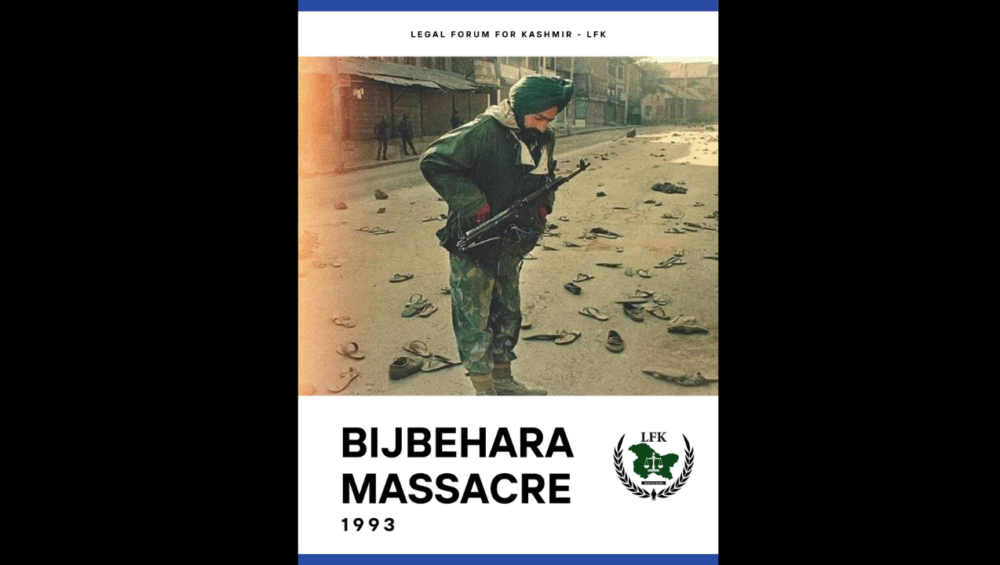 CategoriesReports
CategoriesReportsThe Bijbehara massacre is a harrowing chapter in the history of the Kashmir conflict, one that sent shockwaves not only through the region but also garnered the attention of the international community.
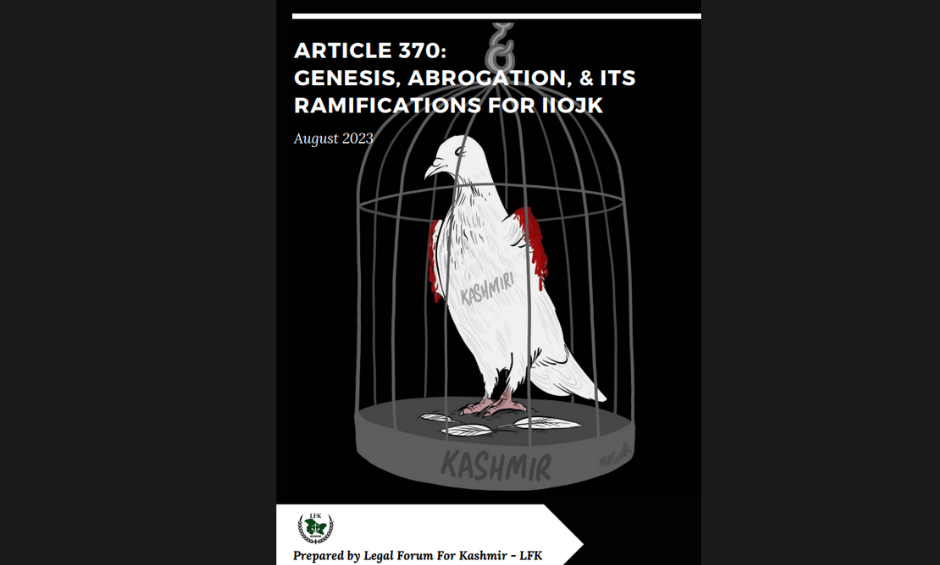 CategoriesReports
CategoriesReportsOn August 5, 2019, India revoked the semiautonomous status of the
Indian Occupied Jammu and Kashmir thereby downgrading the erstwhile state into two centrally governed union territories – Jammu
and Kashmir, and Ladakh.